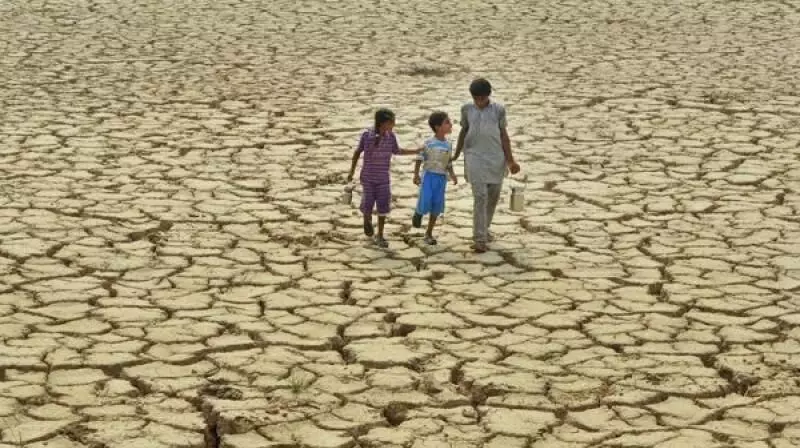
Every fifth child faces water scarcity globally: UNICEF
text_fieldsOne in every five children globally does not have enough water to meet their daily needs, says the latest UNICEF report, meaning more than 1.42 billion people, including 450 million children, live in areas of extremely high water vulnerability. People living in these areas depend on surface water, unimproved water sources that can take more than 30 minutes to collect.
Children in more than 80 countries live in areas with high or extremely high water vulnerability. The highest proportion (58 per cent) of children facing water scarcity are from Eastern and southern Africa. West and Central Africa (31 per cent), South Asia (25 per cent), and West Asia (23 per cent) are the other affected regions.
Children in 37 hotspot countries, which includes Afghanistan, Burkina Faso, Ethiopia, Haiti, Kenya, Niger, Nigeria, Pakistan, etc., face especially dire circumstances in terms of absolute numbers, the proportions of children affected and where global resources, support and urgent action had to be mobilized.
The analysis and report is part of UNICEF's Water Security for All initiative which aims to identify areas where physical water scarcity risks overlap with poor water service levels so that mobilizing resources, forming partnerships, working together for an innovative and global response to these areas can be achieved.
Rapid population growth, urbanization, climate change, extreme weather events, decades of misuse, poor management, over-extraction of groundwater and contamination of freshwater are some of the reasons listed by the report that has caused the dwindling of water resources.
Another UNICEF report published in 2017 had already warned that nearly 600 million children or 1 in 4 children worldwide would be living in areas with limited water resources by 2040.
"We have to act now both to address the water crisis and to prevent it from getting any worse. We can only achieve water security for every child through innovation, investment and collaboration, and by ensuring services are sustainable and resilient to climate shocks. For our children and our planet, we have to act," said UNICEF Executive Director Henrietta Fore.






















